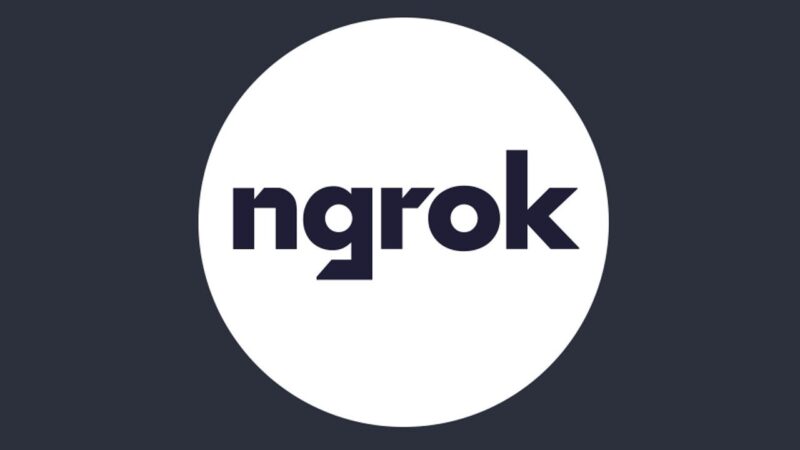Welcome to our comprehensive guide on ngrok alternatives, where we unlock the potential of exposing your local development environment to the internet. In this era of rapid technological advancement, developers require flexible and efficient solutions that go beyond the limitations of traditional tools. Our mission is to help you discover the perfect alternative to ngrok, offering enhanced features and capabilities that can catapult your development workflow to new heights.
Table of Contents
- The Need for ngrok Alternatives
- Introducing Our Top ngrok Alternative Picks
- 1. LocalXpose
- 2. PageKite
- 3. Serveo
- Key Features and Benefits of ngrok Alternatives
- 1. LocalXpose: Powerful Tunneling and Collaboration
- 2. PageKite: Versatile and Easy-to-Use
- 3. Serveo: Simplicity and Security Combined
- Pricing and Plans
- Frequently Asked Questions (FAQs)
- Conclusion
The Need for ngrok Alternatives
While ngrok has undoubtedly revolutionized the way developers share and test their local projects, exploring alternative options is essential to keep up with evolving requirements. By considering ngrok alternatives, you can unlock a world of possibilities, addressing concerns such as pricing, scalability, customization, and additional features. Embracing multiple tools in your arsenal ensures a resilient approach that empowers you to adapt to changing landscapes and capitalize on unique functionalities.
Introducing Our Top ngrok Alternative Picks

Let’s explore our handpicked selection of ngrok alternatives that possess the potential to outperform their competitors, providing seamless exposure for your local development environment.
1. LocalXpose: Collaborative Powerhouse
LocalXpose emerges as a standout ngrok alternative, specifically designed to empower collaboration among developers. This powerful platform enables you to securely share your locally hosted websites, APIs, and webhooks with colleagues, clients, or collaborators across the globe. By effortlessly creating tunnels, LocalXpose grants access to your development environment with a simple command. Its intuitive web interface offers effective management and real-time insights into traffic and connectivity, fostering efficient teamwork on shared projects.
2. PageKite: Versatility at Your Fingertips
PageKite presents a versatile and user-friendly alternative to ngrok, ensuring a reliable and scalable solution for exposing local servers to the web. With its streamlined setup process, you can have your local development environment up and running in no time. PageKite supports a wide range of protocols, including HTTP, HTTPS, SSH, and even SMTP, allowing you to expose various services with utmost ease. Irrespective of your expertise level, PageKite’s intuitive interface and comprehensive documentation make it an ideal choice for developers seeking flexibility and simplicity.
3. Serveo: Simple and Secure Exposures
Serveo is the epitome of simplicity and security in the realm of ngrok alternatives. By removing the complexities of configuration and setup, Serveo enables instant exposure to your local servers. Leveraging the power of SSH, this lightweight tool ensures the privacy and security of your data during transmission. Serveo’s minimalistic design and command-line interface provide a hassle-free experience, catering to developers who value simplicity without compromising on security.
Key Features and Benefits of ngrok Alternatives

Now let’s dive deeper into the distinctive features and benefits offered by our top ngrok alternatives, enabling you to make an informed decision.
1. LocalXpose: Powerful Tunneling and Collaboration
- Secure Tunnels: LocalXpose employs robust encryption, guaranteeing secure data transfer and safeguarding your development environment from potential threats.
- Team Collaboration: With LocalXpose, seamlessly share access to your local environment with team members, clients, or collaborators, facilitating smooth project collaboration.
- Real-time Insights: LocalXpose’s user-friendly web interface provides real-time traffic and connectivity statistics, empowering you with valuable insights into your exposed services and enhancing performance optimization.
2. PageKite: Versatile and Easy-to-Use
- Wide Protocol Support: PageKite accommodates various protocols, allowing you to effortlessly expose different types of services, from web servers to SSH connections and beyond.
- Quick Setup: PageKite offers a hassle-free setup process, ensuring accessibility for developers at any experience level and saving valuable time.
- Reliable and Scalable: With its robust infrastructure, PageKite ensures your services remain accessible and performant, even during periods of high traffic, preventing disruptions and ensuring a seamless user experience.
3. Serveo: Simplicity and Security Combined
- Instant Exposures: Serveo simplifies the process of exposing your local servers by providing immediate access without the need for complex configurations, accelerating your development workflow.
- SSH Security: Serveo leverages SSH connections, guaranteeing the confidentiality and integrity of your data during transmission, and mitigating potential risks.
- Minimalistic Approach: Serveo’s minimalistic design and command-line interface offer a straightforward user experience, making it an ideal choice for developers seeking simplicity without compromising security.
Pricing and Plans
To explore detailed pricing and plan information for each ngrok alternative, we recommend visiting their respective websites directly. Pricing structures may vary based on individual requirements, such as the number of tunnels, concurrent connections, and additional features. By reviewing their pricing details, you can make an informed decision that aligns with your budget and project needs, ensuring a cost-effective solution tailored to your specific requirements.
Frequently Asked Questions (FAQs)
Q1: Can I use these ngrok alternatives with any programming language?
Yes, these ngrok alternatives are compatible with a wide range of programming languages. They offer versatile solutions that can work seamlessly with popular languages like Python, Ruby, Java, Node.js, and more.
Q2: Do these alternatives provide secure connections for exposing my local environment?
Absolutely! All the featured alternatives, LocalXpose, PageKite, and Serveo, prioritize security and employ encryption protocols to ensure secure data transfer between your local environment and the internet.
Q3: Are there any limitations on the number of tunnels or concurrent connections I can create?
The limitations on tunnels and concurrent connections may vary based on the pricing plans offered by each alternative. We recommend reviewing their respective websites for specific details on the plans and features they provide.
Q4: Can I collaborate with team members or clients using these ngrok alternatives?
Certainly! LocalXpose, in particular, emphasizes collaboration and offers features that enable seamless sharing of your local environment with team members, clients, or collaborators. It allows multiple users to access and work on shared projects simultaneously.
Q5: Can I expose multiple services or ports simultaneously using these alternatives?
Yes, all the featured alternatives support exposing multiple services or ports simultaneously. You can expose various web servers, APIs, webhooks, or SSH connections without limitations, depending on your specific needs.
Conclusion
Congratulations! You are now equipped with the knowledge and insights to unleash the full potential of ngrok alternatives. In this article, we introduced three exceptional alternatives: LocalXpose, PageKite, and Serveo. These powerful tools offer unique features, addressing the diverse needs of developers looking to expose their local development environments effectively. Whether you prioritize collaboration, versatility, simplicity, or security, our handpicked alternatives have you covered. We recommend exploring each solution further, delving into their documentation, and trying them out to identify the one that best suits your specific requirements. Say goodbye to limitations and embrace the freedom of exposing your local servers with confidence and ease!









